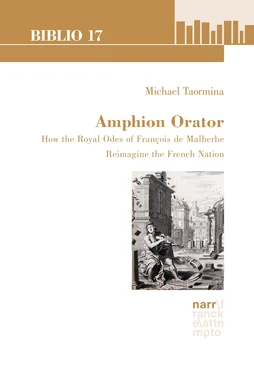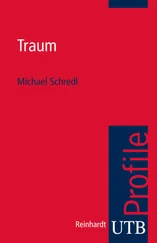Michael Taormina - Amphion Orator
Здесь есть возможность читать онлайн «Michael Taormina - Amphion Orator» — ознакомительный отрывок электронной книги совершенно бесплатно, а после прочтения отрывка купить полную версию. В некоторых случаях можно слушать аудио, скачать через торрент в формате fb2 и присутствует краткое содержание. Жанр: unrecognised, на английском языке. Описание произведения, (предисловие) а так же отзывы посетителей доступны на портале библиотеки ЛибКат.
- Название:Amphion Orator
- Автор:
- Жанр:
- Год:неизвестен
- ISBN:нет данных
- Рейтинг книги:4 / 5. Голосов: 1
-
Избранное:Добавить в избранное
- Отзывы:
-
Ваша оценка:
- 80
- 1
- 2
- 3
- 4
- 5
Amphion Orator: краткое содержание, описание и аннотация
Предлагаем к чтению аннотацию, описание, краткое содержание или предисловие (зависит от того, что написал сам автор книги «Amphion Orator»). Если вы не нашли необходимую информацию о книге — напишите в комментариях, мы постараемся отыскать её.
Amphion Orator — читать онлайн ознакомительный отрывок
Ниже представлен текст книги, разбитый по страницам. Система сохранения места последней прочитанной страницы, позволяет с удобством читать онлайн бесплатно книгу «Amphion Orator», без необходимости каждый раз заново искать на чём Вы остановились. Поставьте закладку, и сможете в любой момент перейти на страницу, на которой закончили чтение.
Интервал:
Закладка:
In From Valor to Pedigree: Ideas of Nobility in France in the Sixteenth and Seventeenth Centuries , Ellery Schalk tracks the caste’s changing sense of identity in the late sixteenth and early seventeenth centuries by examining polemical treatises on nobilitynobility. Nobles and commoners questioned the relevance of a caste held responsible for the devastation of France during the Wars of ReligionWars of Religion. Most of these treatises make it abundantly clear that military service was no longer a sufficient condition for membership in noble ranks. Ennobling titles, offices, and deeds of land ownership had long been for sale, swelling the caste with newcomers. Such treatises therefore aimed to determine what the proper criterion of nobilitynobility should be. The choice was between virtuevirtue and birth. In the early and mid-sixteenth century, the majority agreed that virtuevirtue was the sole criterion, defined as martial valor, physical prowessprowess, and success in fighting (Schalk 21). By the end of the sixteenth century, however, the consensus flipped, with most writers holding that the caste was “simply a group, defined, determined, or justified by birth rather than by virtuous deeds” (Schalk 115). But the two terms were fluid. Noble birth was often considered a variety of “natural virtuevirtue,” the seed of moral virtuevirtue, as it were, a view expressed by Pierre Charron in De la sagesse (1601), while the definition of the polysemic term vertu [virtuevirtue] was stretched to accommodate new social practices. In the late sixteenth century, its meaning came to include the cultural capital conferred by the study of literature. In the early seventeenth century, this extension encompassed the capacity for courtesy and civility. Seventeenth-century opinion would eventually converge on birth as the sole legitimate criterion of nobilitynobility, but Schalk demonstrates the persistence of virtuevirtue in treatises by La Béraudière, Flurance-Rivault, Antoine de Pluvinel, and Nicolas Farethonnête hommeFaret, Nicolas. L’Honnête honnête homme Homme is the most famous of these, marking the evolution from warrior to courtiercourt (royal)courtier by detailing new functions and qualities for the nobleman at courtcourt (royal). Yet Farethonnête hommeFaret, Nicolas’s treatise still sees virtuevirtue as the indispensable quality of the honnête honnête homme homme [honorable man], because virtuevirtue is able “to conquer hearts, and to win the goodwill of the better and healthier part of humanity” (Farethonnête hommeFaret, Nicolas 23). In Farethonnête hommeFaret, Nicolas’s view, birth is a necessary but insufficient condition for nobilitynobility. Schalk shows that the concept of virtuevirtue, extended to include such qualities as education and courtesy, still retained its importance as a legitimate source of prestige, especially when it was a question of arguing that the “well-born” deserved their status and privileges by right. The criterion of birth would assist Louis XIV and the old families in stemming the influx of newcomers into noble ranks, but the criterion of virtuevirtue, within the caste, could and often did serve to rank one noble above another.
While the notion of virtuevirtue exercised considerable influence on noble identitynobilityidentity in the early decades of the seventeenth century, there existed ideological confusion about which virtuevirtue was most important. The contest was essentially between magnanimitymagnanimity and moderationvirtuemoderation, and this choice reflected the contest between the older warrior ethosethos and the newer worldly ethosethos. Scholars have traced both virtuevirtues to the reception of the Nicomachean Ethics AristotleNicomachean Ethics (NE) in seventeenth-century France.2 Prior to Farethonnête hommeFaret, Nicolas’s treatise, a military hero could be described as honnête honnête hommehonnêteté [honorable, noble] and could even be an honnête honnête homme homme [honorable man]. But the term would be increasingly reserved for performances within a specific context. It was understood that the battlefield or military camp required different virtuevirtues than the courtroyal court or the aristocratic salonsalons. Magnanimitymagnanimity leads one to perform heroic exploits, whereas moderationvirtuemoderation is a virtuevirtue that describes the right attitude toward pleasure, implying not just self-control but, and above all, enjoyment of to kalon (AristotleAristotle, NE AristotleNicomachean Ethics (NE) 4.3 & 3.11). The ideological triumph of the honnête honnête homme homme [honorable man] was prepared by the introduction of Greek and Latin authors in the sixteenth century and by the social, political, and theological upheavals of the Wars of ReligionWars of Religion. Christian values and beliefs still dominated the early seventeenth century, and strict conformity to Christian morality and intellectual and religious dogma was enforced by the Jesuits and the Paris Parlement Parlement. Feeling the need for a new ethical outlook and way of life, but one that would not disturb dogmatic opinion, educated elites of the early seventeenth century returned to the humanist res literaria [literary canon]. It allowed them to pull ideas from a range of ethical systems, including Christianity, to fashion the ethosethos of honnête honnête hommehonnêteté té [nobilitynobility] that responded to the changed political and social environment.3
A simple but sharp contrast between magnanimitymagnanimity and moderationvirtuemoderation emerges from a comparison of Rodrigue in Corneille’s Le Cid (1637) and Philinte in Molière’s Le Misanthrope (1666). Both these virtuevirtues of characterethoscharacter presuppose the assistance of an intellectual virtuevirtue, phronēsis phronēsis, often translated as practical wisdom phronēsispractical wisdom, or more loosely, good judgment , defined as the ability to reason correctly about means and ends ( NE 4.6). Whereas phronēsis phronēsis enables Rodrigue to make correct judgments that lead to life-and-death feats of valor, it allows Philinte to make correct judgments productive of pleasure in social situations. In Le Cid (Act 1, Scene 4), Rodrigue reasons that failing to fight Dom Gomès, his fiancée’s father, will cost him both his honor and his fiancée (she will not love him disgraced), and so he fights the duel to preserve his honor, resigning himself to the enmity of his beloved. Similarly, in Act 4, Scene 3, outnumbered by the Moors invading Seville, Rodrigue has the presence of mind to lay an ambush, lulling the enemy into a false sense of security, and turning the unfavorable circumstances to his advantage. By contrast, in Le Misanthrope (Act 1, Scene 1), Philinte displays practical wisdomphronēsispractical wisdom through worldliness: he adapts himself and his discourse to his interlocutors; he censures his own reactions of dislike or displeasure; and he regards human failings with generosity of spirit. The self-effacing moderationvirtuemoderation of Philinte, in spite of his own and everyone else’s insincerity, procures a civilized pleasure for imperfect human beings engaged in conversation.
From these examples, one could extrapolate that magnanimitymagnanimity and moderationvirtuemoderation are virtuevirtues suited to distinct sociopolitical configurations. Magnanimitymagnanimity was well adapted to a Renaissance monarchypolitymonarchy dominated by a constellation of great nobles who either played an active role in affairs of state or revolted when they felt excluded from power, whereas moderationvirtuemoderation was more appropriate to an absolutist regime in which nobles no longer had a share in sovereignty and needed the methods of civility to obtain social distinction and to secure opportunities for advancement in the service of king and country. The predominance of the warrior ethosethos in the early years of the seventeenth century and the emergence and co-existence of honnête honnête hommehonnêteté té alongside it, before the triumph of honnête honnête hommehonnêteté té in the late 1660s, parallel the messy and unsteady transition of the Renaissance monarchypolitymonarchy to a more absolutist form of rule.
Читать дальшеИнтервал:
Закладка:
Похожие книги на «Amphion Orator»
Представляем Вашему вниманию похожие книги на «Amphion Orator» списком для выбора. Мы отобрали схожую по названию и смыслу литературу в надежде предоставить читателям больше вариантов отыскать новые, интересные, ещё непрочитанные произведения.
Обсуждение, отзывы о книге «Amphion Orator» и просто собственные мнения читателей. Оставьте ваши комментарии, напишите, что Вы думаете о произведении, его смысле или главных героях. Укажите что конкретно понравилось, а что нет, и почему Вы так считаете.












